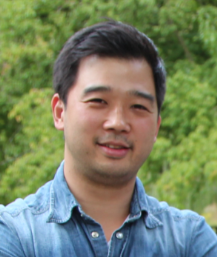Events
Feb 10, 2022
Seminar (2022-02-10)
School of Biomedical Sciences is pleased to invite you to join the following seminar:
Date: Thursday, February 10, 2022
Time: 4:00 pm – 5:30 pm
Via Zoom: https://hku.zoom.us/meeting/register/tJ0pd-yrrD4oEtc6x992A0stxDw7FV7DKySV
Meeting ID: 994 0532 5283
Password: 112117
Speaker: Dr. Johnny Kim, Principal Investigator, Institute for Lung Health and Max Planck Institute for Heart and Lung Research, Germany
Title: “Regeneration and tumorigenesis at the heart of reversible programming”
Biography

Johnny Kim is a molecular biologist and Group Leader at the Max Planck Institute for Heart and Lung Research in Germany. The Kim lab aims to understand the molecular and multicellular demands that enable tissue maintenance and regeneration in health and how defects thereof lead to cellular transformation and tumorigenesis. To this end the Kim lab integrates advanced genetic engineering coupled with systems biological pipelines to resolve multicellular and molecular dynamics of cellular transformation. Johnny Kim was born in Toronto, Canada. He studied biochemistry at the University of Greifswald, Germany and obtained his Diploma in Biochemistry and Molecular Biology from the University of Hamburg in 2003. In 2008, Johnny Kim received his PhD (summa cum laude) at the Center for Molecular Neurobiology Hamburg (ZMNH) where he worked on ubiquitin-dependent protein degradation in development and disease for which he received the Gebhard-Koch Prize. In 2009, he then joined the Department of Cardiac Remodelling directed by Thomas Braun at the Max Planck Institute for Heart and Lung Research (MPI-HLR) in Bad Nauheim, Germany. During this time, he pioneered the integration of genetics and functional genomics of the primary regenerative muscle compartment. Dr. Kim was awarded several fellowships and grants from the Excellence Cluster Cardio-Pulmonary System (ECCPS) and the Center for Cell and Gene Therapy (LOEWE-CGT). Since 2013, Johnny Kim runs a research group within the Department of Cardiac Remodelling at the MPI-HLR. In 2021, he was appointed as an independent group leader at the Institute for Lung Health, and continues to run his lab the Max Planck Institute for Heart and Lung Research.
Abstract
Cardiovascular diseases (CVDs) include coronary artery diseases and myocardial infarctions, commonly known as heart attack, which ultimately leads to the death of cardiomyocytes that are responsible for heart contraction. Profound interest lies in identifying means that would enable heart regeneration through restoration of cardiomyocytes that are permanently lost after heart damage. We discovered that partial, cardiomyocyte-specific reprogramming instates regenerative potential of the mammalian heart by dedifferentiating adult cardiomyocytes to a proliferation-competent state that is similar to embryonic cardiomyocytes. Timely termination of pluripotency factor expression however enables re-differentiation of cardiomyocytes back to the mature and division-incompetent state. By controlling the degree of progressive cardiomyocyte de-differentiation it is possible to instate proliferative and regenerative capacity and restore physiological heart function upon cardiac damage before and during a myocardial infarction. Our study provides perspectives to control cellular plasticity in a spatio-temporally defined fashion to synthesize tissue regenerative abilities by combinations of genetic and chemical interventions.
ALL ARE WELCOME
Should you have any enquiries, please feel free to contact Miss River Wong at 3917 9216.
